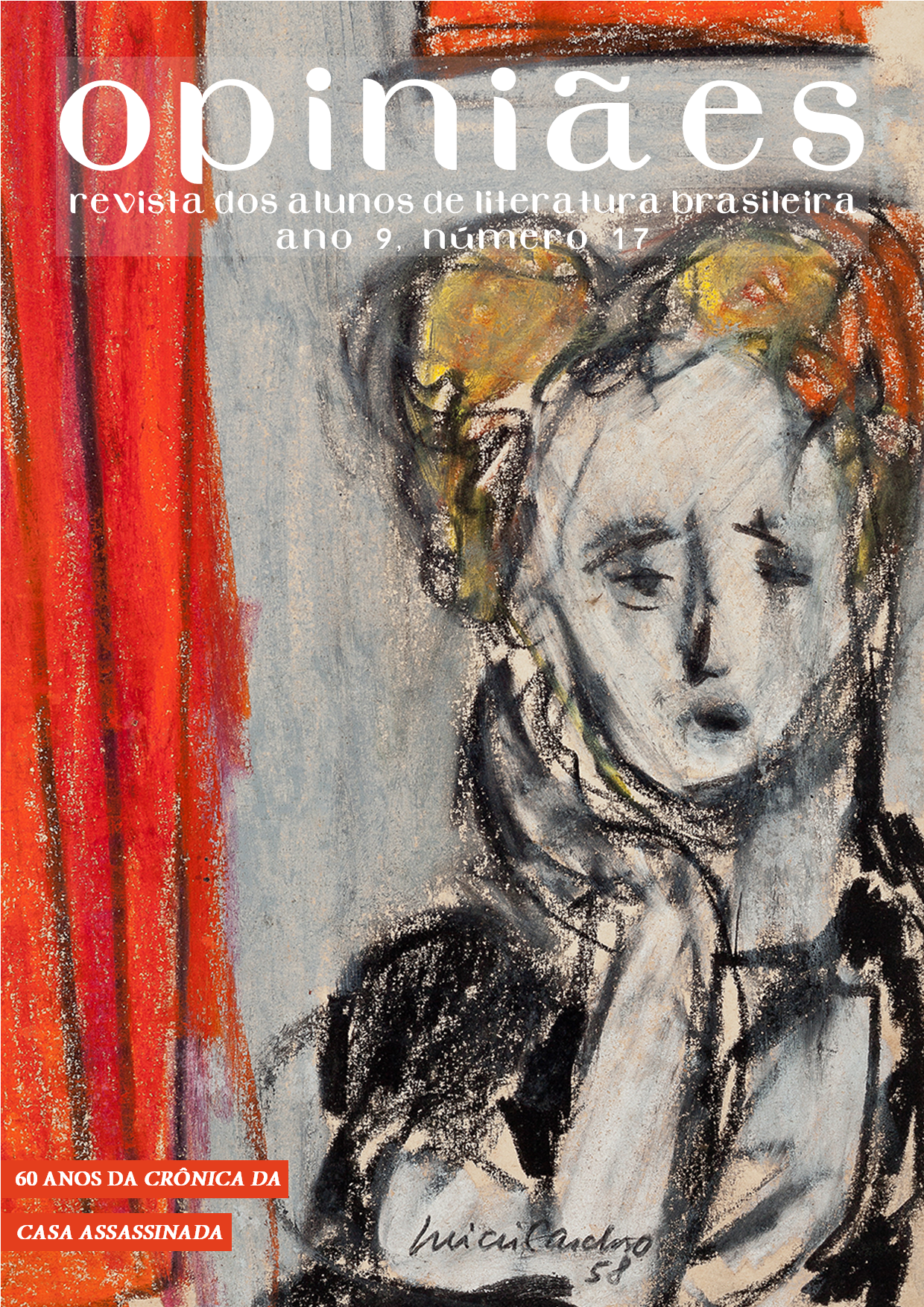The Discourse of Interdiction in Chronicle of the Murdered House
DOI:
https://doi.org/10.11606/issn.2525-8133.opiniaes.2020.169443Keywords:
Chronicle of the Murdered House, Discourse of Interdiction, Spatialization, SegregationAbstract
This paper aims to discuss the discourse of interdiction in the novel Chronicle of the Murdered House by Lúcio Cardoso. Based on the fundamental opposition between nature and culture, it is intended to demonstrate that the “non-prescribed” relationships are pragmatically sanctioned by segregating the actors to certain spaces. Therefore, two orders of space are established in the narrative: the space of the “prescribed” relationships and the space of the “non-prescribed” relationships. In the novel, the “non-prescribed” relationships are the homosexual and incestuous ones, being the latter considered forbidden (interdicted). Considering the category of verticality, the spaces of segregation correspond to “low”. In the connection “high” versus “low”, the first one is the space of culture, social coercion, and “prescribed” relationships; the second one is the space of nature, individual drives, and “non-prescribed” relationships. The theoretical background is based on French semiotics theories. The methodology consists of an excerpt of the novel in which the selected subjects, on their narrative paths, aim to be in conjunction with their objects of value that is considered forbidden by the social addresser.
Downloads
References
BACHELARD, Gaston. A poética do espaço. Tradução de Antonio Pádua Danesi. 2. ed. São Paulo: Martins Fontes, 2008.
BATAILLE, Georges. O erotismo. Tradução de Fernando Scheibe. Belo Horizonte: Autêntica, 2014.
BORBA, Francisco S. Dicionário de usos do português do Brasil. São Paulo: Ática, 2002.
CARDOSO, Lúcio. Crônica da casa assassinada. 13. ed. Rio de Janeiro: Civilização Brasileira. 2013.
ELIADE, Mircea. O sagrado e o profano: a essência das religiões. Tradução de Rogério Fernandes. 3. ed. São Paulo: Editora WMF Martins Fontes, 2010.
FIORIN, José Luiz. As astúcias da enunciação: as categorias de pessoa, espaço e tempo. 2. ed. São Paulo: Ática, 2001.
FOUCAULT, Michel. Vigiar e punir: nascimento da prisão. Tradução de Raquel Ramalhete. 34. ed. Petrópolis, RJ, 2007.
LÉVI-STRAUSS, Claude. As estruturas elementares do parentesco. Tradução de Mariano Ferreira. 6. ed. Petrópolis: Vozes, 2010.
SARAIVA, Francisco Rodrigues dos Santos. Novíssimo dicionário latino-português. 12. ed. Rio de Janeiro Garnier, 2006.
VERNANT, Jean-Pierre. Mito e pensamento entre os gregos: estudos de psicologia histórica. Tradução de Haiganuch Sairan. São Paulo: Difusão Europeia do Livro; Editora da Universidade de São Paulo, 1973.
Downloads
Published
Issue
Section
License
Copyright (c) 2020 Ernani Terra

This work is licensed under a Creative Commons Attribution 4.0 International License.
A revista Opiniães não exerce cobrança pelas contribuições recebidas, garantindo o compartilhamento universal de suas publicações. Os autores mantêm os direitos autorais sobre os textos originais e inéditos que disponibilizarem e concedem à revista o direito de primeira publicação, com o trabalho simultaneamente licenciado sob a Licença Creative Commons Attribution que permite o compartilhamento do trabalho com reconhecimento da autoria e publicação inicial nesta revista.



